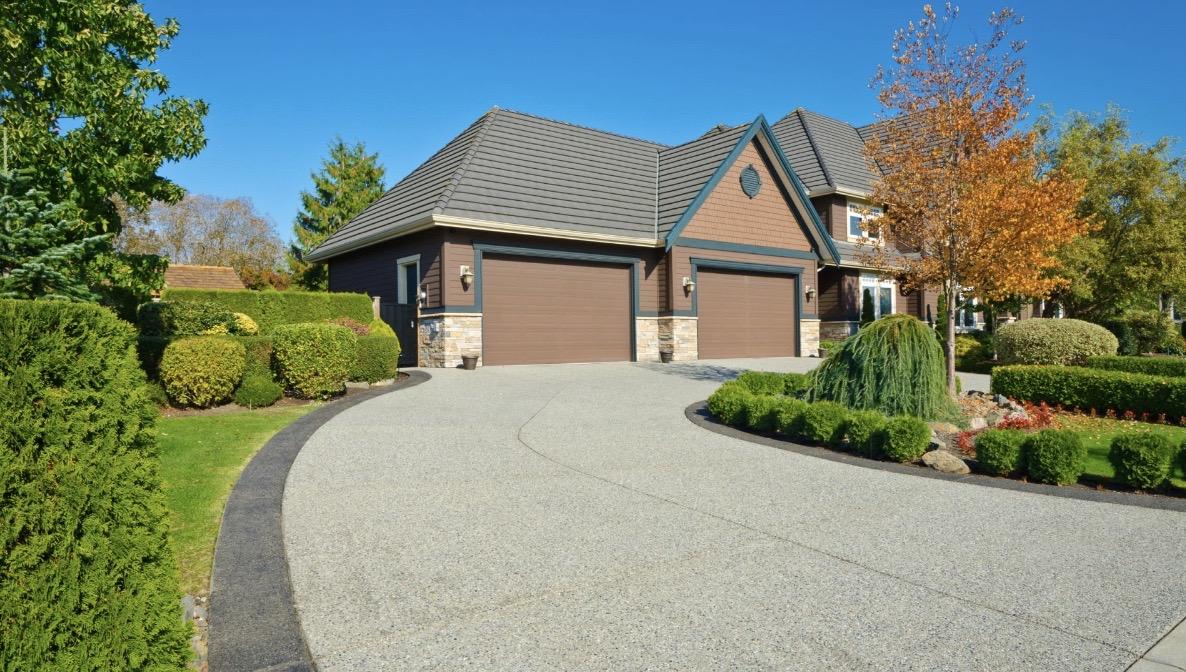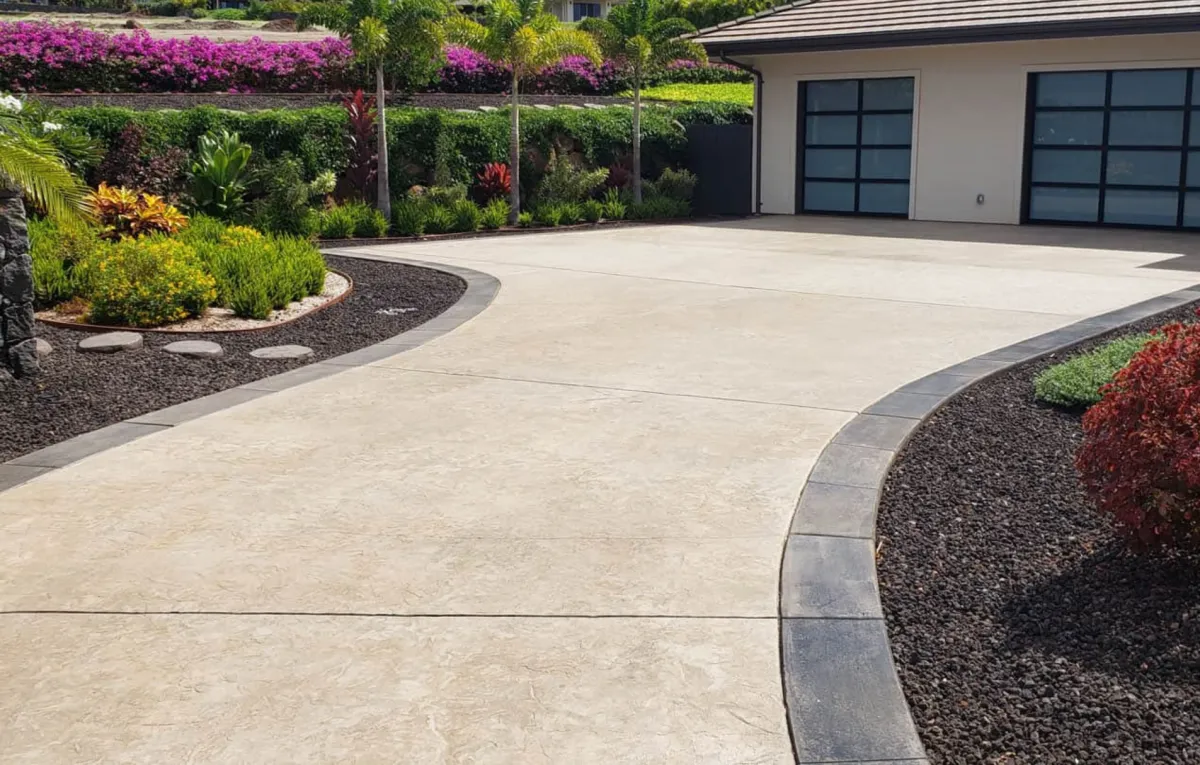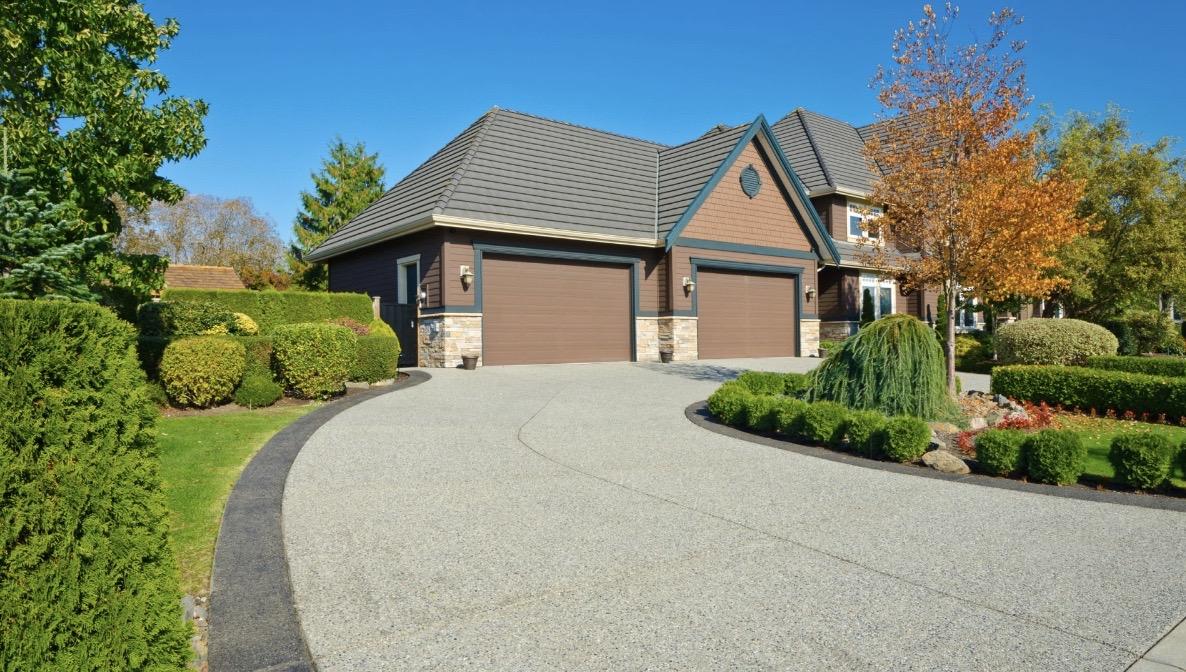Blog > Concrete Creations & Excavations Articles
Concrete Creations & Excavations Article Library
Welcome to the Concrete Creations & Excavations Blog Article Library, a valuable resource designed to connect homeowners like you with the world of concrete craftsmanship and innovation. Our blog serves as a hub for those seeking inspiration and information about the remarkable potential of concrete in transforming your living spaces. Whether you're planning a home improvement project, considering a renovation, or simply intrigued by the beauty of concrete, our library of articles is here to empower you with knowledge and insights. Join us on a journey of exploration as we unveil the incredible possibilities of concrete and showcase the exceptional creations that await you. At Concrete Creations & Excavations, we're not just a contractor; we're your partner in creating concrete masterpieces that enhance your home's beauty and functionality.


How thick should concrete be before pouring?
When it comes to pouring concrete, many homeowners in Northwestern Arkansas have one burning question: how thick should my concrete be? Whether you’re planning a new driveway, patio, or a foundation for that dream shed in the backyard, the thickness of your concrete is crucial for durability and performance. Let’s dive into the details, making it easy and enjoyable for you to understand!
Why Thickness Matters
Before we get into the specifics, let’s talk about why the thickness of your concrete matters. Imagine your concrete surface as a cake. If your cake is too thin, it might crumble when you try to cut it. The same goes for concrete—if it’s too thin, it may crack under pressure or wear out more quickly. You want a solid, sturdy surface that can withstand the weight of vehicles, foot traffic, and even Mother Nature’s elements!
Residential Driveways: 4-6 Inches
For most residential driveways in Northwestern Arkansas, the recommended thickness is 4 to 6 inches. This thickness is perfect for supporting standard cars and light trucks. Here are a few reasons why this range works so well:
Weight Distribution: A thickness of 4 to 6 inches helps distribute the weight of vehicles evenly. This is especially important in areas where heavy rain can soften the ground beneath the concrete.
Durability: Thicker concrete is less likely to crack over time. If you plan to park a vehicle on your driveway or have kids riding their bikes, a solid thickness ensures that your driveway will hold up well.
Cost-Effectiveness: Pouring a 4 to 6-inch thick driveway is often more budget-friendly. While you want to ensure quality, there’s no need to overdo it unless you have heavy vehicles or plan to use the driveway for something more intense.
Resistant to Weather: The weather in Northwestern Arkansas can be unpredictable. A thicker driveway is better equipped to handle temperature changes and moisture. This can prevent cracking and extend the life of your driveway.
Commercial Spaces: 6-8 Inches
Now, if you’re dealing with a commercial project—like a parking lot for your business or a heavier-use area—then you’ll want to consider a thickness of 6 to 8 inches. This thicker concrete is necessary for several reasons:
Heavy Traffic: Commercial spaces often experience heavier traffic, including garbage trucks, delivery vans, and other large vehicles. A thickness of 6 to 8 inches ensures that the concrete can handle the extra weight without breaking down.
Longevity: Just like with residential driveways, thicker concrete in commercial spaces helps extend the life of the surface. This means fewer repairs and less downtime for your business.
Safety: Thick concrete is more resistant to cracks, which can be a tripping hazard. For commercial properties where safety is a priority, investing in a thicker surface is a smart choice.
Weathering: Commercial spaces might have more exposure to weather conditions, especially if they have outdoor areas. Thicker concrete can better withstand rain, snow, and extreme temperatures.
Custom HTML/CSS/JAVASCRIPT
Other Factors to Consider
While thickness is a vital aspect of your concrete project, it’s not the only factor. Here are some other things to think about:
Soil Quality: The type of soil under your concrete plays a role in how thick you should pour. If you have unstable or soft soil, you might need to increase the thickness or use a different foundation approach.
Purpose: Think about how you’ll use the concrete surface. Will it be for parking, walking, or other activities? The more stress the surface will endure, the thicker it should be.
Local Climate: In Northwestern Arkansas, temperature fluctuations can affect concrete. Thicker concrete can help prevent cracking due to freeze-thaw cycles.
Future Plans: If you think you might use your driveway or space for heavier vehicles in the future, consider opting for a thicker pour from the get-go. It’s easier and cheaper to do it right the first time than to repair cracks later!
Getting It Right
Before you jump into your concrete project, it's essential to consult with a professional. They can provide valuable insights and ensure that your thickness is appropriate for your specific needs. Plus, they can help with the proper mixing and pouring techniques to ensure a long-lasting surface.
Final Thoughts
In conclusion, when it comes to the ideal thickness for pouring concrete, remember:
Residential driveways should be 4 to 6 inches thick.
Commercial spaces may require 6 to 8 inches.
No matter what your project is, ensure you understand the requirements and consult with a concrete professional in Northwestern Arkansas. With the right thickness, you’ll have a durable and attractive concrete surface that stands the test of time. Now, get ready to enjoy your new concrete driveway, patio, or whatever exciting project you have planned! Happy pouring!
Contact Us
Service Hours
Social Media
2025 | Concrete Creations & Excavations | Rights Reserved
Owned and Operated by JD's Concrete Creations LLC
Powered By: House Reno Profits
Blog > Concrete Creations & Excavations Article Library
Concrete Creations & Excavations Article Library

Welcome to the Concrete Creations & Excavations Blog Article Library, a valuable resource designed to connect homeowners like you with the world of concrete craftsmanship and innovation. Our blog serves as a hub for those seeking inspiration and information about the remarkable potential of concrete in transforming your living spaces. Whether you're planning a home improvement project, considering a renovation, or simply intrigued by the beauty of concrete, our library of articles is here to empower you with knowledge and insights. Join us on a journey of exploration as we unveil the incredible possibilities of concrete and showcase the exceptional creations that await you. At Concrete Creations & Excavations, we're not just a contractor; we're your partner in creating concrete masterpieces that enhance your home's beauty and functionality.

How thick should concrete be before pouring?
When it comes to pouring concrete, many homeowners in Northwestern Arkansas have one burning question: how thick should my concrete be? Whether you’re planning a new driveway, patio, or a foundation for that dream shed in the backyard, the thickness of your concrete is crucial for durability and performance. Let’s dive into the details, making it easy and enjoyable for you to understand!
Why Thickness Matters
Before we get into the specifics, let’s talk about why the thickness of your concrete matters. Imagine your concrete surface as a cake. If your cake is too thin, it might crumble when you try to cut it. The same goes for concrete—if it’s too thin, it may crack under pressure or wear out more quickly. You want a solid, sturdy surface that can withstand the weight of vehicles, foot traffic, and even Mother Nature’s elements!
Residential Driveways: 4-6 Inches
For most residential driveways in Northwestern Arkansas, the recommended thickness is 4 to 6 inches. This thickness is perfect for supporting standard cars and light trucks. Here are a few reasons why this range works so well:
Weight Distribution: A thickness of 4 to 6 inches helps distribute the weight of vehicles evenly. This is especially important in areas where heavy rain can soften the ground beneath the concrete.
Durability: Thicker concrete is less likely to crack over time. If you plan to park a vehicle on your driveway or have kids riding their bikes, a solid thickness ensures that your driveway will hold up well.
Cost-Effectiveness: Pouring a 4 to 6-inch thick driveway is often more budget-friendly. While you want to ensure quality, there’s no need to overdo it unless you have heavy vehicles or plan to use the driveway for something more intense.
Resistant to Weather: The weather in Northwestern Arkansas can be unpredictable. A thicker driveway is better equipped to handle temperature changes and moisture. This can prevent cracking and extend the life of your driveway.
Commercial Spaces: 6-8 Inches
Now, if you’re dealing with a commercial project—like a parking lot for your business or a heavier-use area—then you’ll want to consider a thickness of 6 to 8 inches. This thicker concrete is necessary for several reasons:
Heavy Traffic: Commercial spaces often experience heavier traffic, including garbage trucks, delivery vans, and other large vehicles. A thickness of 6 to 8 inches ensures that the concrete can handle the extra weight without breaking down.
Longevity: Just like with residential driveways, thicker concrete in commercial spaces helps extend the life of the surface. This means fewer repairs and less downtime for your business.
Safety: Thick concrete is more resistant to cracks, which can be a tripping hazard. For commercial properties where safety is a priority, investing in a thicker surface is a smart choice.
Weathering: Commercial spaces might have more exposure to weather conditions, especially if they have outdoor areas. Thicker concrete can better withstand rain, snow, and extreme temperatures.
Custom HTML/CSS/JAVASCRIPT
Other Factors to Consider
While thickness is a vital aspect of your concrete project, it’s not the only factor. Here are some other things to think about:
Soil Quality: The type of soil under your concrete plays a role in how thick you should pour. If you have unstable or soft soil, you might need to increase the thickness or use a different foundation approach.
Purpose: Think about how you’ll use the concrete surface. Will it be for parking, walking, or other activities? The more stress the surface will endure, the thicker it should be.
Local Climate: In Northwestern Arkansas, temperature fluctuations can affect concrete. Thicker concrete can help prevent cracking due to freeze-thaw cycles.
Future Plans: If you think you might use your driveway or space for heavier vehicles in the future, consider opting for a thicker pour from the get-go. It’s easier and cheaper to do it right the first time than to repair cracks later!
Getting It Right
Before you jump into your concrete project, it's essential to consult with a professional. They can provide valuable insights and ensure that your thickness is appropriate for your specific needs. Plus, they can help with the proper mixing and pouring techniques to ensure a long-lasting surface.
Final Thoughts
In conclusion, when it comes to the ideal thickness for pouring concrete, remember:
Residential driveways should be 4 to 6 inches thick.
Commercial spaces may require 6 to 8 inches.
No matter what your project is, ensure you understand the requirements and consult with a concrete professional in Northwestern Arkansas. With the right thickness, you’ll have a durable and attractive concrete surface that stands the test of time. Now, get ready to enjoy your new concrete driveway, patio, or whatever exciting project you have planned! Happy pouring!
Contact Us
479-341-5542
Centerton, AR, 72719
Service Hours
Mon-Sat: 7am - 7pm
Sun: OFF
Social Media








